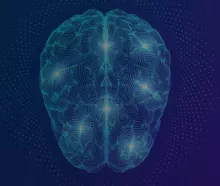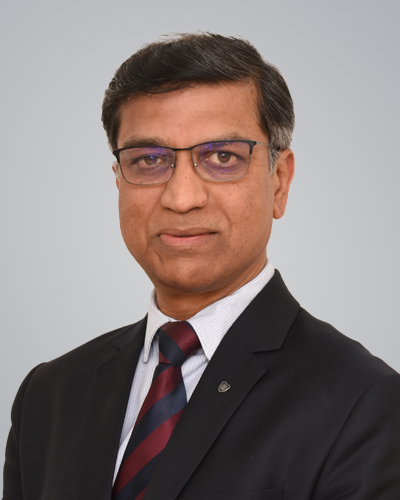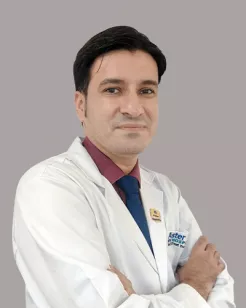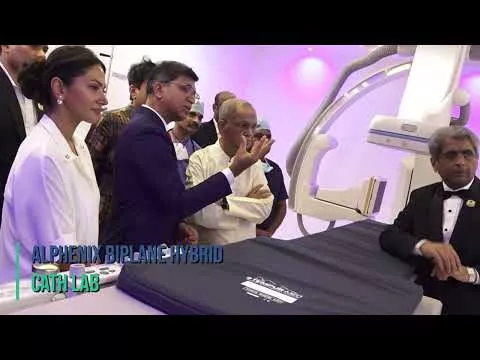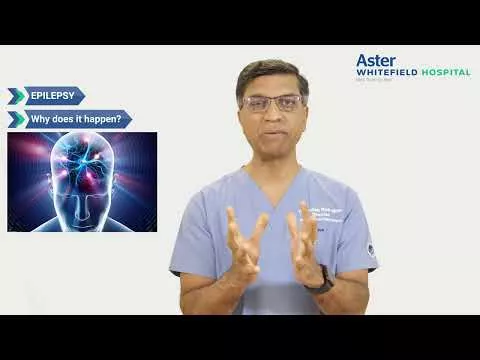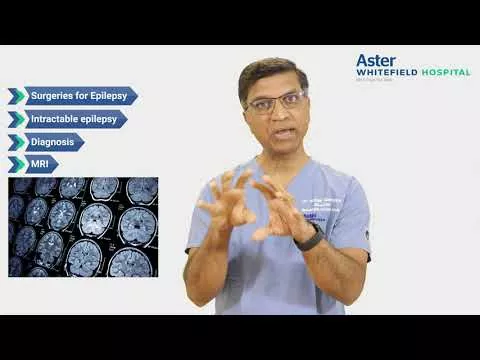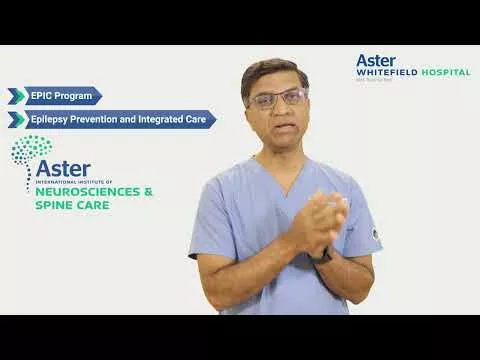Aster Whitefield Hospital's Comprehensive Epilepsy Care aims to provide holistic care, employing cutting-edge technologies and a multidisciplinary approach to improve the lives of individuals affected by epilepsy. The program is dedicated to offering specialized attention and tailored treatment strategies to individuals affected by epilepsy. A team of renowned epileptologists, functional neurosurgeons, and healthcare professionals collaborate seamlessly to offer personalized care and innovative solutions.
The program prioritizes patient comfort, safety, and successful outcomes throughout the patient's journey. It integrates advanced diagnostics, precise surgical interventions, and comprehensive follow-up care. The program strives to enhance the quality of life for each patient through individualized treatment plans and ongoing support. Visit us to explore our range of specialized facilities, each designed to provide accurate diagnoses, targeted interventions, and ongoing support for patients affected by epilepsy.
Epilepsy, the fourth most common neurological disorder, affects people of all ages and can cause unprovoked seizures. A seizure is a condition in which sudden, uncontrolled electrical irregularity occurs in the brain. It may cause changes in behaviour, movements, feelings, and levels of consciousness. Patients who have two or more seizures or a single episode of seizure with tendency to have recurrent seizures are considered to have epilepsy.
Epilepsy affects 50 million people worldwide and 80% of them live in the developing world. More than 70% of patients who are treated with anti-seizure medications (ASM) achieve long-term remission or freedom from seizures. The rest 30% may become refractory to ASMs and other forms of medical treatment, hence become suitable candidates to be investigated for the possibility of epilepsy surgery.
Treatment Options
Various treatments are available to effectively manage symptoms and improve quality of life. The common treatment options include:
- Anti-seizure medications (ASMs): These are the most used treatments, and they work by regulating brain activity.
- Surgery: This option is considered for people with epilepsy that do not respond to medications. It involves removing the part of the brain causing seizures.
- Neurostimulation: This involves implanting a device to stimulate specific areas of the brain, which can help reduce seizure frequency. Examples of neurostimulation treatments include vagus nerve stimulation and deep brain stimulation.
- Ketogenic Diet: This high-fat, low-carbohydrate diet can be effective in children with epilepsy. It works by altering brain chemistry and requires strict adherence.
Diagnosis
Our advanced diagnostic testing facilities for epilepsy includes:
- Routine 32-channel digital video EEG
- Round-the-clock, long-term 128-channel video EEG monitoring
- Functional MRI and WADA study to assess eloquent cortex regions
- 3 Tesla MRI
- PET (Positron Emission Tomography)
- SPECT (Single-Photon Emission Computerized Tomography)
- ECOG (Electrocorticography)
- Cortical Mapping
- SSEP (Somatosensory Evoked Potential)
- MEP (Motor Evoked Potential)
Surgery for Epilepsy
Surgery for epilepsy is considered for individuals who do not respond to anti-seizure medications. It involves removing or altering the part of the brain causing seizures. There are several types of epilepsy surgery:
- Resective surgery: This involves removing the part of the brain causing seizures.
- Disconnective surgery: This involves cutting the connections between the part of the brain causing seizures and other parts of the brain.
- Corpus callosotomy: This involves cutting the corpus callosum, which is the bundle of nerve fibres connecting the two hemispheres of the brain.
- Neurostimulation for Epilepsy: Neurostimulation involves implanting a device to stimulate specific areas of the brain and can help reduce seizure frequency. There are different types of neurostimulation:
- Vagus Nerve Stimulation (VNS): A device is implanted in the chest and sends electrical signals to the vagus nerve, which is a long nerve that runs from the brain to the abdomen.
- Deep Brain Stimulation (DBS): Electrodes are implanted in specific areas of the brain and deliver electrical stimulation
- Responsive Neuro Stimulation (RNS): A device is implanted in the brain to monitor brain activity and deliver electrical stimulation when a seizure is about to start.
Epilepsy Prevention and Integrated Care Program
Aster Whitefield Hospital, Bengaluru, in collaboration with Rotary Bangalore IT Corridor, Rotary Kolar Central, and the Department of Health and Family Welfare, Government of Karnataka, successfully launched the EPIC (Epilepsy Prevention and Integrated Care) program. This groundbreaking initiative aims to reach and support individuals suffering from epilepsy through early detection and effective disease management. The program particularly focuses on lower to middle socio-economic groups where awareness and access to proper diagnosis and treatment are often limited.
While large-scale epidemiological studies in India are still not available, an extrapolation of data suggests that our country would have about 1 million people suffering from epilepsy and would have at any given point of time 200,000 patients who would benefit from surgery (about 20,000 new surgical candidates being added every year). This obviously places an immense responsibility on the neurosurgeons from India to develop comprehensive facilities which would cater to epilepsy surgery.
The EPIC program aims to bridge the enormous treatment gap for refractory epilepsy patients by conducting Refractory Epilepsy Clinics in various districts in Karnataka and other parts of India. We are planning to set-up facilities for video EEG and tele-monitoring in these clinics, so that patients who will benefit from Epilepsy surgery are identified early and undergo Epilepsy surgery in a cost-effective manner while delivering on our brand promise, “We’ll Treat You Well”
Choose Aster Whitefield Hospital for Epilepsy Care Our commitment to excellence, coupled with our advanced facilities and compassionate care, makes us the preferred choice for epilepsy treatment in Bangalore.
Our Doctors
We have some of the best specialists from around the world, they bring years of experience and offer evidence-based treatment to ensure the best care for you.
FAQs
Want to find out more about the treatment? The answer to your questions can be found below.
What are different types of epilepsy surgeries?
Epilepsy surgeries are of two types. In patients where we find a small, focal brain area responsible for epilepsy, we go for resection of that area. These surgeries are called curative surgeries where once that area is removed; patient will be mostly free of epilepsy. However, there is a group of patients in which a large area is responsible, or we could not define a small area or removing complete area is not feasible; surgeries are meant to just reduce seizure frequency and improve quality of life. These surgeries are called palliative surgeries.
What are complications with epilepsy surgery?
Epilepsy surgery is a carefully planned procedure, carried out under optimal circumstances to remove the region of brain causing the seizures, and to spare parts of the brain necessary for everyday functions.
Complications are very infrequent in epilepsy surgery, major complications like motor deficits, language deficits, vegetative states and disabilities are seen in 3-5% of cases. Other treatable complications like infections, prolonged hospitalizations, transient deficits, speech problems, mood problems, visual field deficits are common and do not alter the normal daily life. Overall, epilepsy surgery is safe surgery, and it improves quality of life of many patients and their care takers significantly.
What is Epileptology and what is the role of epileptologist?
Epileptology is a subspecialty of Neurology, focussing on evaluation and management of difficult to treat or complex epilepsy cases where seizures were not controlled despite starting anti-epileptic medications prescribed by a physician, paediatrician, or Neurologist.
Epileptologist is trained in detailed evaluation and management of complex paediatric as well as adult epilepsy cases and plays the key role in precisely finding out whether there is an epileptogenic focus in the brain which can be surgically removed to permanently cure epilepsy.
What are the investigations required for a patient with drug-resistant epilepsy?
Basic tests include Video EEG, 3 Tesla MRI epilepsy protocol and Neuropsychological assessment. Additional tests needed may be PET scan, SPECT scan, functional MRI, WADA.
What are EEG and video EEG and their necessity?
Video EEG is nothing but a simultaneous recording of EEG along with a video camera focused on you all the time. You will be admitted, and EEG leads will be connected to you. You will be under the camera for 24 hours while your EEG on. When you have a seizure, it will record the exact movements you do during your seizure activity and simultaneous EEG recordings. This will provide us with the exact idea of the area of your brain accountable for producing these seizures. Generally, 3-10 episodes of seizure will be recorded and so patients usually stay for 5-7 days in the hospital. We generally stop your drugs so that more seizures can be obtained in a short time. It is secure as you are having seizures in a controlled environment of the hospital, supported with doctors and nurses all the time.
What are the chances of improvement after epilepsy surgery?
Chances of seizure control depend on many variables and varies between 50-90%. If MRI shows some lesion which could be completely removed, then 9 out of 10 people can achieve seizure freedom and almost 6 out of 10 patients can be off medicine. However, outcome is in the magnitude of 50% with palliative surgeries. Outcome typically depends on the responsible pathology.
What can I do to manage my epilepsy?
Self-management is what one should do to take care of self. You can learn how to manage seizures and keep an active and full life. Begin with these tips:
- Take your medicine.
- Discuss with your doctor or nurse when you have questions.
- Recognize seizure triggers (such as flashing or bright lights).
- Keep a record of your seizures.
- Get enough sleep.
- Lower stress.
What is the incidence of epilepsy and drug-resistant epilepsy?
There are 70 million persons with epilepsy (PWE) worldwide, nearly 12 million PWE are expected to reside in India, which contributes to nearly one-sixth of the global burden. One million Indians have medically refractory seizures. An approximate 5 -6 lakh people are candidates for epilepsy surgery in India.
What is an Epilepsy Monitoring Unit (EMU?)
It is a specialized unit in the hospital for constant monitoring of brain activity using EEG and Video, where a patient is admitted for 3-5 days. This provides your doctor with a better understanding of your seizures by seeing how your brain functions and what you are physically doing during the event.
How do I prepare for the EMU Admission
To prepare for an EMU Admission:
• Wash your hair the night before or the day of the test, but do not apply any conditioners, hair creams, sprays or styling gels to your hairs. Hair products use should be avoided as it can make tougher for the sticky patches that are used to hold the electrodes to adhere to your scalp. If you have weaves or braids, need to be removed before a test is completed.
• Wear loose-fitting clothes
• Follow your physician’s instructions regarding your medication.
• Arrive at the hospital on scheduled time, delays can occur if you are late.
• You may bring electronics like a laptop to use during your stay.
• Visitors are allowed during your EMU admission. A family member or loved one who is familiar with the seizure is asked to stay along with the patient at the hospital.
Blogs
The source of trustworthy health and medical information. Through this section, we provide research-based health information, and all that is happening in Aster Hospital.

